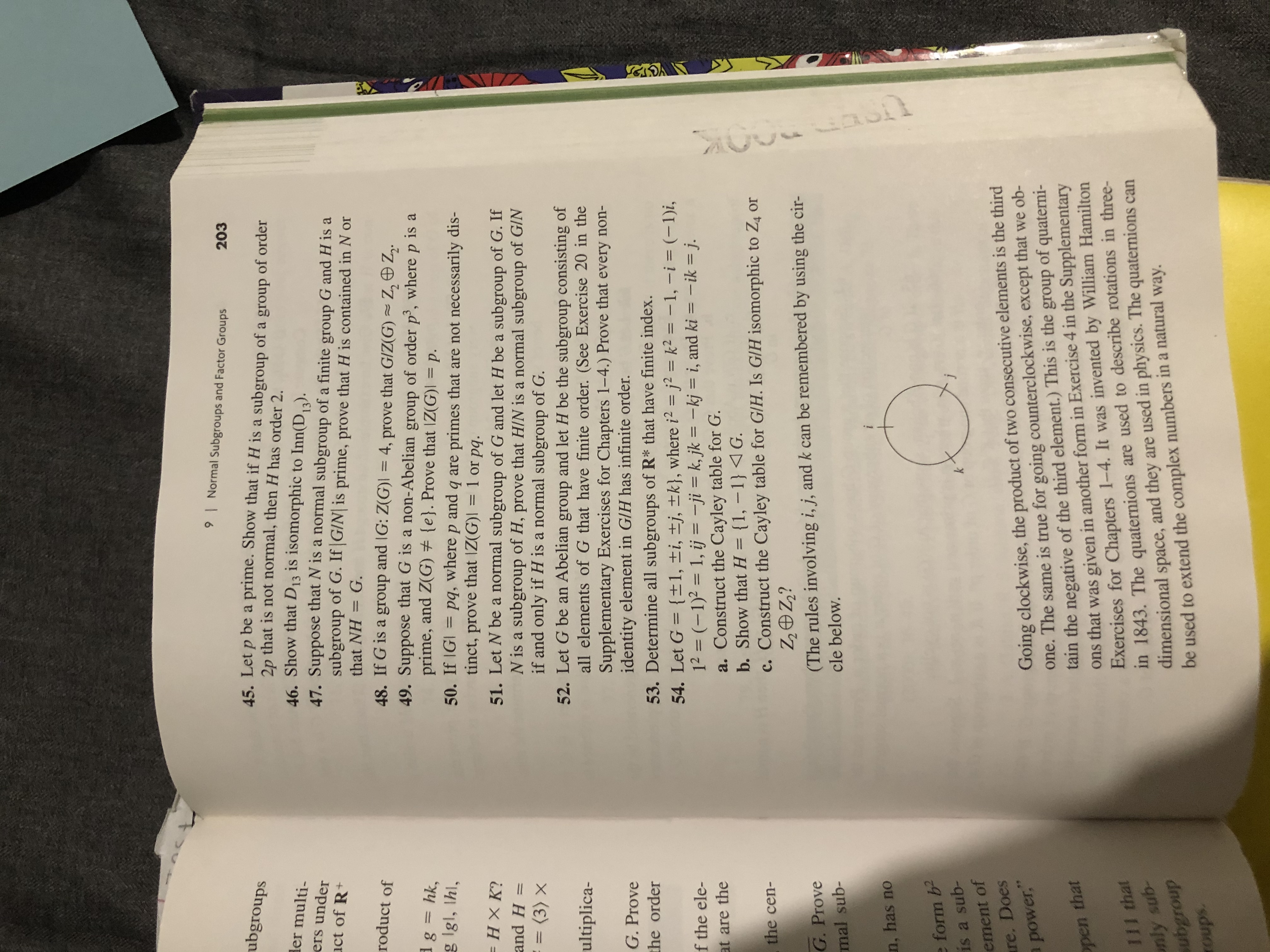54

Extracted text: 9 Normal Subgroups and Factor Groups 203 ubgroups 45. Let p be a prime. Show that if H is a subgroup of a group of order 2p that is not normal, then H has order 2. 46. Show that D13 is isomorphic to Inn(D,). 47. Suppose that N is a normal subgroup of a finite group G and H is a subgroup of G. If G/N| is prime, prove that H is contained in N or Her multi- ers under uct of R+ that NH G. roduct of 48. If G is a group and IG: Z(G) = 4, prove that G/Z(G) Z Z2 49. Suppose that G is a non-Abelian group of order p', where p is a prime, and Z(G) e}. Prove that IZ(G)I = p. 50. If IGI= pq, where p and q are primes that are not necessarily dis- tinct, prove that IZ(G)I = 51. Let N be a normal subgroup of G and let H be a subgroup of G. If N is a subgroup of H, prove that H/N is a normal subgroup of GIN if and only if H is a normal subgroup of G. 52. Let G be an Abelian group and let H be the subgroup consisting of all elements of G that have finite order. (See Exercise 20 in the Supplementary Exercises for Chapters 1-4.) Prove that every non- identity element in G/H has infinite order. 53. Determine all subgroups of R* that have finite index. dg = hk, g Igl, Ihl, 1 or pq. 1 — НХК? and H = (3) x 1 ultiplica- G. Prove the order 54. Let G {+1, ti, tj, tk}, where i2 - j2 = k2 - -1, -i = (-1)i, 12 (-1)2 1, ij = -ji= k, jk = -kj = i, and ki = -ik = j. a. Construct the Cayley table for G. f the ele- at are the (1, -1 1G b. Show that H 1 c. Construct the Cayley table for G/H. Is GlH isomorphic to Z4 or ZZOZ? (The rules involving i, j, and k can be remembered by using the cir- the cen- G. Prove mal sub- cle below. n, has no e form b is a sub- ement of re. Does power," Going clockwise, the product of two consecutive elements is the third one. The same is true for going counterclockwise, except that we ob- tain the negative of the third element.) This is the group of quaterni- ons that was given in another form in Exercise 4 in the Supplementary Exercises for Chapters 1-4. It was invented by William Hamilton in 1843. The quaternions are used to describe rotations in three- dimensional pen that IIl that nly sub- subgroup roups. space, and they are used in physics. The quaternions can be used to extend the complex numbers in a natural way. uaon